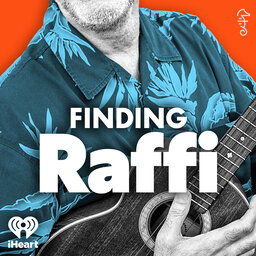All I Really Need
What if we didn’t put adults first? What if our policies and laws and individual actions were all for the kids? Raffi and Dr. Sharna Olfman describe a utopian vision.
Learn more about your ad-choices at https://www.iheartpodcastnetwork.com
 Finding Raffi
Finding Raffi


